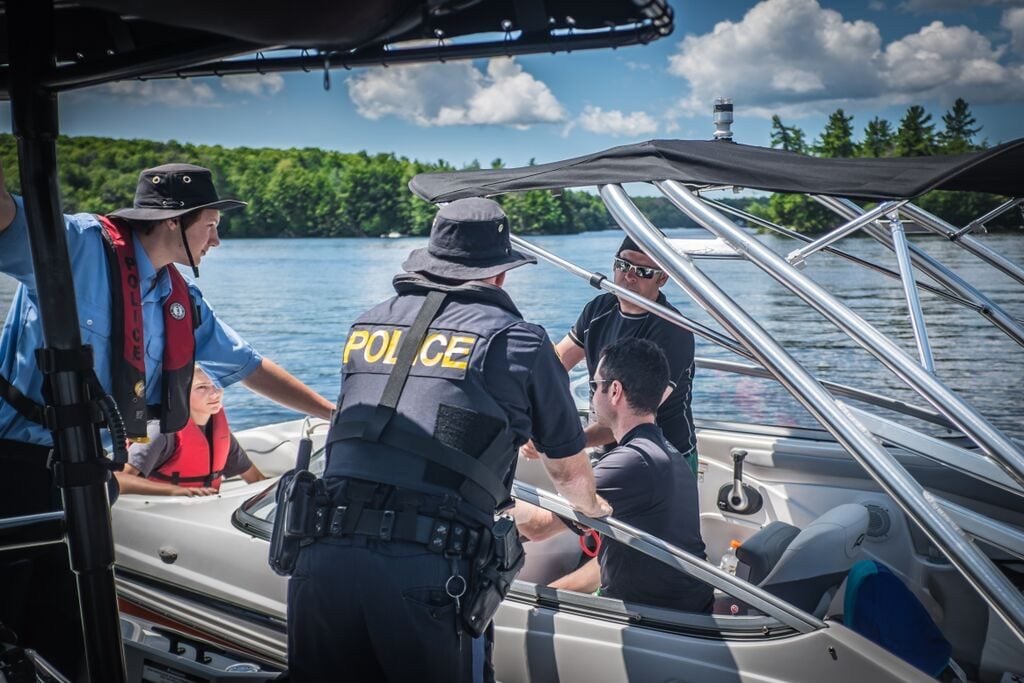Written by: Nick Todorovic and Monica Khosravi, Summer Student
Summer has arrived, marking the start of boating season! It is finally time to relax, unwind, and cruise around the lake with some friends. With the hot sun beating down, it is only natural that most boaters would reach for an icy cold beer. Before doing so, however, there are a few legal considerations to keep in mind.
In the province of Ontario, a boat is considered a ‘motor vehicle’, meaning it is viewed as an equivalent to a car. The implication of this is that all drunk driving laws that many are familiar with from driving cars also directly apply to driving boats. Section 253(1) of the Criminal Code states that anyone who operates a motor vehicle or vessel , or has care or control of a motor vehicle or vessel while impaired by alcohol or a drug, commits a criminal offense. To be considered “impaired” means to have consumed a quantity of alcohol that makes a person’s Blood-Alcohol Concentration (BAC) level exceed 80 mg of alcohol per 100 mL of blood (0.08).
The punishment for driving a boat while drunk varies, depending on the frequency and severity of the offence. A first offence may result in a fine of not less than $1000; a second offence may result in imprisonment for no less than 30 days; and subsequent offences may result in imprisonment for no less than 120 days. Other consequences may include: losing your license, having your boat impounded, being ordered to attend an educational or rehab treatment program, and being required to install an ignition interlock device to the boat.
The punishment for driving a boat while drunk intensifies exponentially if the drunk driver causes an accident that results in another person being injured. A drunk driving accident which causes bodily harm to another person can result in the driver facing an imprisonment term of no more than 10 years. Under the most extreme scenario, if a drunk driver kills someone while operating a boat, they may be sentenced to life in prison.
Passengers of a boat may consume alcohol as long as the boat is equipped with permanent cooking facilities, permanent sleeping facilities, and a permanent toilet. The boat must also be anchored or secured alongside a dock; passengers cannot drink while the boat is in motion. The owner or operator of the boat is responsible for making sure that their boat meets these requirements before any passengers begin drinking. It is also their responsibility to stay sober and ensure that everyone gets home safely.
Alcohol has the ability to hinder a boater’s rational line of thinking, which can be exceptionally dangerous when situated on a lake. According to the Life Saving Society, between 2004 and 2013, 26% of drowning deaths occurred due to boating-related activities. Alcohol consumption was a factor in 39% of these fatalities, and 82% of victims were not wearing a life jacket at the time of the incident. This raises an important reminder that the law requires there be a life jacket on board for each person in the watercraft at all times. It is important that a boat driver stay sober not only so that they remember to pack the jackets, but also so that they may help their passengers put them on should there be an emergency. Boating accidents are fully preventable by taking simple precautions and always ensuring there is a sober, designated driver. For more on boating safety visit the Canadian Safe Boating Council website.
Be sure to also check out National Safe Boating Week, which is being held from May 20-26, 2017. The campaign is packed with life-saving messages and activities to promote safe and responsible boating. Click here to find out more information about National Safe Boating Week.
Although it is easily preventable, if you or a loved one is injured in a boating accident, contact one of the critical injury lawyers at McLeish Orlando LLP for a free consultation.






